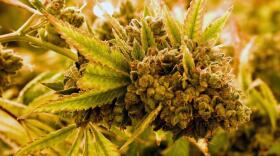-
Attorney General James Uthmeier and two major business groups have urged the Florida Supreme Court to reject a proposed recreational-marijuana constitutional amendment, arguing it is misleading and conflicts with federal law. Uthmeier, the Florida Chamber of Commerce and Associated Industries of Florida filed briefs Friday as the Supreme Court prepares to make a pivotal decision about whether the proposed constitutional amendment meets legal tests to go on the November ballot.
-
It’s the time of year when the eggnog and festive cocktails will be running rampant through social gatherings. However, a recent Gallup poll shows that only 54-percent of US Adults say they consume alcohol.
-
-
Last year, two Citizen-Led Amendment Initiatives failed to meet the 60% requirement to become law. Those included the attempts to legalize marijuana and to bring an end to the state’s abortion ban.
-
The president-elect recently affirmed that he supports legalizing marijuana for recreational use. His stance means cannabis could be a rare issue on which Trump carries a Biden policy forward.
-
Tuesday’s election marks an historic red wave here in Florida from the Presidential race to constitutional amendment proposals, down to local political contests. WGCU Southwest Florida in Focus host Sandra Viktorova provides some post-election analysis in a conversation with FGCU political scientist Dr. Sandra Pavekla and WGCU host/reporter John Davis.
-
A $150 million-plus effort to allow recreational use of marijuana in Florida fizzled out Tuesday, falling short of the needed 60 percent voter approval and delivering a major victory for Gov. Ron DeSantis.
-
The policy would have authorized the state’s medical marijuana growers and retailers to sell to consumers.
-
This election Florida voters will decide whether marijuana should be available to millions more, allowing anyone age 21 or older to get and use marijuana without a prescription.
-
Ron DeSantis held a rally in Naples on Tuesday, October 29, campaigning against amendments 3 and 4. His comments on Amendment 3, the legalization of recreational marijuana, call into question the honesty with which he is representing the amendment to his supporters.
Play Live Radio
Next Up:
0:00
0:00
Available On Air Stations








